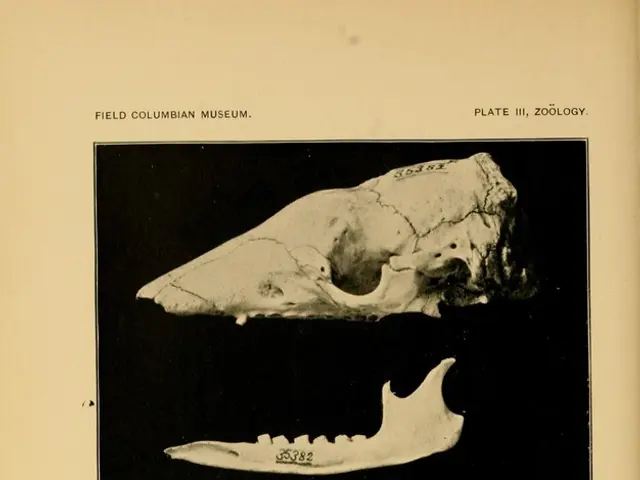Worldwide Trends: Prenatal Examinations and the Rise of Non-Invasive Tests in Lower Saxony
Increase in Pre-Natal Blood Screenings for Chromosomal Abnormalities in Barmer - Increase in Blood Tests for Chromosomal Abnormalities Reported in Barmer
Pregnant women in Lower Saxony, especially those aged 36 and above, are increasingly choosing non-invasive prenatal tests (NIPT) for trisomies, according to data from health insurance giant, Barmer. This uptick in NIPT usage, from 34.4% in 2023 to 44.8% last year, might be influenced by a variety of factors.
Barmer, which insures 8.4 million people across Germany, including around 800,000 in Lower Saxony, hints at the growing appeal of NIPT due to increased safety and accuracy. The test scrutinizes the genetic makeup of the unborn child for trisomies 13, 18, and 21, with Down syndrome (trisomy 21) being the most common. It's worth noting that trisomies occur when certain chromosomes in a child's cells are present in three copies instead of two, often resulting in physical malformations, intellectual disabilities, and a shortened lifespan.
Since July 2022, statutory health insurance companies have covered the cost of this test. However, NIPT is not part of the recommended preventive examinations during pregnancy. The popularity of non-invasive tests can be linked to their lower risk of complications compared to invasive tests such as amniocentesis and chorionic villus sampling (CVS), which carry a small chance of miscarriage.
The trend of NIPT usage seems to be a reflection of broader, global shifts in prenatal testing practices. With advancements in technology, pregnant women are increasingly opting for non-invasive tests because they offer higher accuracy rates than invasive ones. Moreover, insurance coverage can impact a test's adoption rate – if Barmer or similar providers offer coverage for NIPT, this could encourage more women to opt for these tests.
Patient preferences play a significant role as well. Women often prefer NIPT for its non-invasive nature and lower risk of complications. Coupled with improved accessibility and increased insurance coverage, these factors contribute to a rise in the use of NIPT, creating a more informed and proactive prenatal care environment.
Despite the surge in NIPT usage, there are no apparent indications that the number of invasive tests is decreasing correspondingly. It remains to be seen whether the introduction of NIPT will ultimately reduce the need for invasive procedures, bringing a new era of safer and less risky prenatal diagnostics.
In the context of growing trends in prenatal examinations, there's an increasing focus on vocational training programs within the community, aimed at equipping healthcare professionals with the skills needed to effectively administer and interpret non-invasive prenatal tests (NIPT).
The advancements in science, particularly in the field of medical-conditions like trisomies, have led to a breakthrough in health-and-wellness, as NIPT offers higher accuracy rates compared to invasive tests, thereby enhancing women's health.
Steps in promoting health education, such as making NIPT a part of vocational training curricula, could significantly impact the reduction of medical-conditions like cancer in the future, fostering a safer and healthier society.








